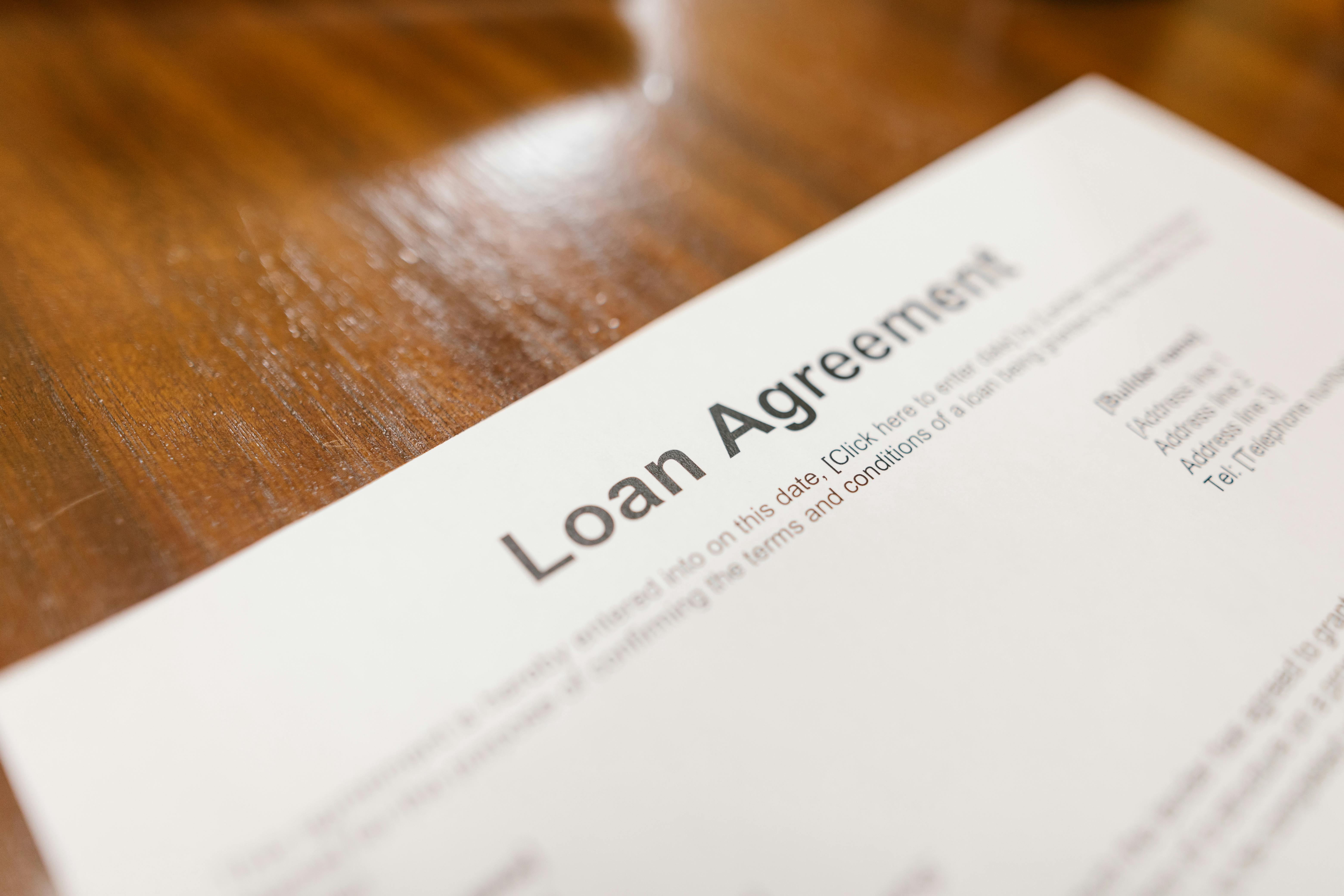
Overcoming Financing Challenges: How to Get a Business Loan with Bad Credit
Introduction
Running a business comes with its fair share of challenges, and one of the biggest hurdles entrepreneurs face is obtaining financing. Whether you're starting a new business or looking to expand an existing one, having access to capital is crucial for growth and success. However, if Learn more you have bad credit, securing a business loan can be particularly challenging.

In this article, we will explore strategies and tips on how to overcome financing challenges and secure a business loan, even with bad credit. We will delve into the options available for obtaining funding, discuss ways to improve your creditworthiness, and provide valuable insights for navigating the loan application process. So let's dive in!
Overcoming Financing Challenges: How to Get a Business Loan with Bad Credit
Understanding the Importance of Business Credit
Before we delve into the strategies for obtaining a business loan with bad credit, it's essential to understand the significance of business credit. Just like personal credit, your business credit score plays a vital role in determining your eligibility for loans and other forms of financial assistance.
Having good business credit demonstrates your ability to manage debt responsibly and gives lenders confidence in your repayment ability. On the other hand, poor or non-existent business credit can make it challenging to secure financing or result in higher interest rates and less favorable loan terms.
Evaluating Your Current Financial Situation
Before applying for a business loan, it's crucial to evaluate your current financial situation thoroughly. This assessment will help you determine the amount of funding you need and identify potential areas of improvement that can boost your chances of approval.
Start by reviewing your personal and business credit reports. Look for any errors or discrepancies that could be negatively impacting your scores. If you find any inaccuracies, take steps to rectify them immediately.
Additionally, analyze your financial statements, including profit and loss statements, cash flow projections, and balance sheets. This evaluation will give you a clear understanding of your business's financial health and help you identify areas where you can improve.
Exploring Loan Options for Businesses with Bad Credit
While traditional lenders may be hesitant to extend credit to businesses with bad credit, there are alternative financing options available. Here are some avenues worth exploring:
1. Small Business Administration (SBA) Loans
The Small Business Administration offers several loan programs designed to assist small businesses in obtaining financing. While the SBA doesn't lend directly to businesses, it guarantees a portion of the loan, making it less risky for lenders.
SBA loans typically have more flexible eligibility requirements and longer repayment terms than traditional bank loans. However, keep in mind that the application process can be more rigorous and time-consuming.
2. Online Lenders
Online lenders have gained popularity in recent years due to their willingness to work with businesses with less-than-perfect credit. These lenders often use alternative underwriting methods and consider factors beyond credit scores when evaluating loan applications.
Online lenders offer various loan products, including term loans, lines of credit, and invoice factoring. It's essential to research and compare different lenders' rates and terms to find the best fit for your business.
3. Peer-to-Peer Lending
Peer-to-peer lending platforms connect borrowers directly with individual investors willing to fund their loans. These platforms often have less stringent credit requirements than traditional lenders and can be an excellent option for businesses with bad credit.
To increase your chances of approval on peer-to-peer lending platforms, focus on presenting a compelling business plan and highlighting potential sources of revenue or collateral.
4. Alternative Financing Options
Apart from traditional loans, several alternative financing options cater specifically to businesses with bad credit. These include merchant cash advances, equipment financing, invoice financing, and revenue-based financing.
Each option has its own unique features and requirements, so it's crucial to thoroughly research and understand the terms before committing to any financing agreement.

Improving Your Creditworthiness
While exploring alternative financing options is essential, it's also crucial to work on improving your creditworthiness over time. Here are some strategies you can implement to boost your business credit:
1. Paying Bills on Time
Consistently paying your bills on time is one of the most effective ways to improve your creditworthiness. Late payments can have a significant negative impact on your credit score, so make it a priority to settle all financial obligations promptly.
2. Reduce Debt-to-Credit Ratio
Lenders assess your debt-to-credit ratio when evaluating your creditworthiness. Aim to keep this ratio as low as possible by paying down existing debts or increasing your available credit.
3. Establish Trade Credit
Building strong relationships with suppliers and vendors can help you establish trade credit, which is a form of financing that allows you to defer payment for goods and services. Regularly utilizing trade credit and making timely payments can positively impact your business credit score.
4. Monitor Your Credit Reports
Regularly monitoring your personal and business credit reports allows you to identify any errors or discrepancies promptly. Addressing these issues can prevent them from negatively impacting your creditworthiness.
Navigating the Loan Application Process
Once you've identified the most suitable loan option for your business and worked on improving your creditworthiness, it's time to navigate the loan application process. Here are some tips to help you streamline this process:
Gather all necessary documents: Before applying for a loan, gather all required documentation, including financial statements, tax returns, bank statements, and any additional paperwork requested by the lender.
Prepare a comprehensive business plan: A well-crafted business plan demonstrates your preparedness and professionalism to lenders. Include information about your business, market analysis, financial projections, and how you plan to utilize the loan.
Seek professional assistance: If navigating the loan application process seems overwhelming, consider seeking professional assistance from accountants, financial advisors, or business consultants. These experts can guide you through the process and ensure your application is accurate and complete.
Be prepared for rejection: Rejection is a common occurrence in the loan application process, especially for businesses with bad credit. Rather than giving up, learn from the experience, seek feedback from lenders, and explore alternative financing options.
FAQs
Can I get a business loan with bad credit? Yes, it is possible to obtain a business loan with bad credit. Explore alternative financing options such as online lenders, peer-to-peer lending platforms, and alternative financing options catered specifically to businesses with bad credit.
What is an LLC loan? An LLC loan refers to a loan obtained by a limited liability company (LLC). This type of loan allows an LLC to secure financing for its operations or expansion.
How can I improve my business credit? To improve your business credit, focus on paying bills on time, reducing your debt-to-credit ratio, establishing trade credit relationships, and regularly monitoring your credit reports for errors or discrepancies.
What is an SBA loan? The Small Business Administration (SBA) offers several loan programs designed to assist small businesses in obtaining financing. SBA loans have more flexible eligibility requirements and longer repayment terms than traditional bank loans.
Are there grants available for small businesses with bad credit? While grants are typically not available solely based on bad credit, there may be grants available for specific industries or purposes. Research and explore grant opportunities that align with your business's goals and objectives.
Can I get a business loan from the government? Yes, the government offers various loan programs for small businesses, including those with bad credit. Explore options such as SBA loans and other government-backed financing programs.
Conclusion
Overcoming financing challenges and securing a business loan with bad credit may seem daunting, but it's not impossible. By understanding the importance of business credit, exploring alternative financing options, improving your creditworthiness, and navigating the loan application process strategically, you can increase your chances of obtaining the funding needed to grow and succeed. Remember to stay persistent, seek professional assistance when necessary, and explore all available avenues to achieve your business goals.